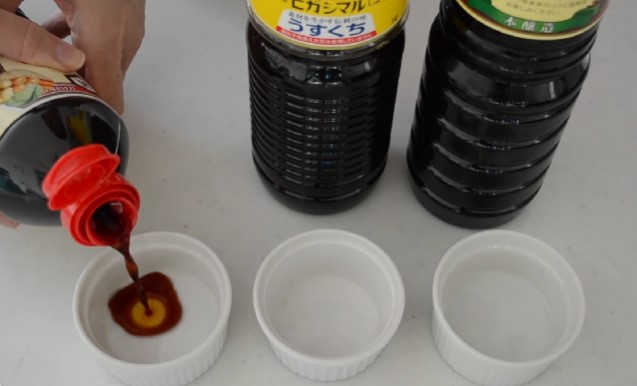Is Mirin Halal
Mirin is a beloved ingredient in Japanese cuisine, known for its sweet and tangy flavor that enhances a variety of dishes. From glazing fish to adding depth to sauces, mirin plays a crucial role in creating the unique taste profile of Japanese food. However, for Muslim consumers, the question arises: is mirin halal? Understanding the halal status of mirin involves delving into its ingredients, production process, and the Islamic dietary laws that govern what is permissible. This article aims to provide a comprehensive overview, helping you navigate the complexities of halal certification and offering alternatives to mirin that can be used in your cooking without compromising on taste.
What is Mirin?
Mirin is a type of rice wine with a high sugar content, used primarily for cooking in Japanese cuisine. It is similar to sake but has a lower alcohol content and a sweeter taste. Traditional mirin is made through a fermentation process involving steamed glutinous rice, cultured rice (koji), and distilled rice liquor. The fermentation results in a liquid with a typical alcohol content of around 14%.

Halal Status of Mirin
Alcohol Content
One of the primary concerns for Muslim consumers regarding mirin is its alcohol content. In Islam, the consumption of alcohol is strictly prohibited, and any product containing alcohol is considered haram (forbidden). Traditional mirin contains a significant amount of alcohol, which generally categorizes it as non-halal. Even though the alcohol in mirin may evaporate during cooking, many scholars argue that any presence of alcohol renders the product haram.
Halal Certification
For mirin to be considered halal, it must undergo a production process that adheres to Islamic dietary laws. This involves using halal-certified ingredients, avoiding any non-halal additives, and ensuring that the production facilities meet halal standards. Halal-certified mirin ensures that the product is permissible for Muslim consumption. There are manufacturers that produce halal-certified mirin, which eliminates the alcohol content and uses halal-friendly fermentation agents.
Alternatives to Mirin
For those who want to enjoy the flavors that mirin imparts without compromising their dietary restrictions, there are several alternatives:
- Halal-Certified Mirin: Some companies produce halal-certified mirin that mimics the flavor and sweetness of traditional mirin without any alcohol content.
- Sugar and Vinegar: A common substitute involves mixing sugar with a small amount of vinegar. This combination can replicate the sweet and tangy flavor of mirin.
- Grape Juice and Lemon: Another alternative is using a mixture of white grape juice and lemon juice to achieve a similar taste profile.
- Apple Juice: Apple juice can also be used as a substitute, providing the sweetness needed for recipes that call for mirin.
These alternatives allow you to maintain the integrity of your dishes while adhering to halal dietary guidelines.
Where to Buy Halal Mirin
Finding halal-certified mirin can be a challenge, but it is available from specialty stores and online retailers. Some popular brands offer halal-certified versions of mirin that you can purchase:
- Yokoi Vinegar Brewing: Offers halal-certified pure rice vinegar and mirin-style seasonings.
- Noyama Official Website: Sells halal-certified mirin that can be ordered online and shipped internationally.
When purchasing mirin, always check for halal certification to ensure that the product meets the required standards.
Frequently Asked Questions
What is the main ingredient in mirin?
Mirin is primarily made from glutinous rice, rice koji (a type of mold), and distilled alcohol. The fermentation process of these ingredients gives mirin its unique sweet flavor.
How does mirin differ from other rice wines?
Mirin is sweeter and has a lower alcohol content compared to sake. It is specifically used for cooking to add sweetness and depth to dishes, whereas sake is often consumed as a beverage.
Can mirin be used in non-Japanese cuisine?
Yes, mirin can be used in various cuisines to add a subtle sweetness and enhance flavors in marinades, glazes, and sauces.
Is there a halal-certified version of mirin available?
Yes, there are halal-certified versions of mirin or mirin-like seasonings available, which do not contain alcohol. These products can be found in specialty halal stores or online retailers.
What is the difference between hon-mirin and mirin-like seasoning?
Hon-mirin contains about 14% alcohol and is used traditionally in Japanese cooking. Mirin-like seasoning, on the other hand, contains less than 1% alcohol and is often used as a non-alcoholic alternative to hon-mirin.
How can I substitute mirin in my recipes if I follow a halal diet?
You can substitute mirin with a mixture of rice vinegar and sugar, or use other sweeteners like honey, dates syrup, or sugar to achieve a similar flavor without the use of alcohol.
Does the alcohol in mirin evaporate during cooking?
While some of the alcohol in mirin may evaporate during cooking, it is not guaranteed that all the alcohol will be removed, which can be a concern for those following a strict halal diet.
Can Muslims consume dishes made with mirin?
Muslims who follow a strict halal diet typically avoid dishes made with traditional mirin due to its alcohol content. It is advisable to use halal-certified or alcohol-free alternatives in such cases.
Where can I buy halal-certified mirin?
Halal-certified mirin can be found in specialty halal stores, certain supermarkets with a diverse international section, and online retailers like Amazon.
What dishes commonly use mirin?
Mirin is commonly used in Japanese dishes such as teriyaki, sukiyaki, and nikujaga (meat and potato stew). It adds sweetness and enhances the overall flavor profile of these dishes.
Is there a taste difference between traditional mirin and its halal alternatives?
Yes, there can be slight differences in taste. Traditional mirin has a distinct sweetness and depth from the fermentation process, while halal alternatives may use different sweeteners that can slightly alter the flavor.
How is mirin produced?
Mirin is produced by fermenting glutinous rice with rice koji and adding distilled alcohol. This mixture is left to ferment, which converts the starches in the rice into sugars, creating the sweet flavor characteristic of mirin.
Can I make my own mirin substitute at home?
Yes, you can make a simple mirin substitute at home by mixing rice vinegar with sugar or using other sweeteners like honey or dates syrup to achieve a similar flavor.
Are there any specific brands known for halal-certified mirin?
While specific brands may vary by region, it is important to look for those that have halal certification from recognized authorities. Checking with local halal certification bodies can help identify trusted brands.
What is the shelf life of mirin and its alternatives?
Traditional mirin and its halal alternatives usually have a long shelf life if stored properly in a cool, dry place. Always check the expiration date on the packaging and store according to the manufacturer’s instructions to maintain quality.
Does mirin have any health benefits?
Mirin, like other fermented products, may offer some health benefits due to its fermentation process. However, due to its sugar content, it should be used in moderation. Halal alternatives also offer similar culinary benefits without the alcohol content.
Conclusion
Navigating the halal status of mirin requires an understanding of its production process and the principles of Islamic dietary laws. While traditional mirin is generally considered haram due to its alcohol content, halal-certified alternatives provide a solution for Muslim consumers who wish to enjoy the flavors of Japanese cuisine. By opting for these alternatives, you can taste different dishes without compromising your religious beliefs. Always consult with knowledgeable scholars and check for halal certification when in doubt.
Read also: Culver’s Nutrition Facts





